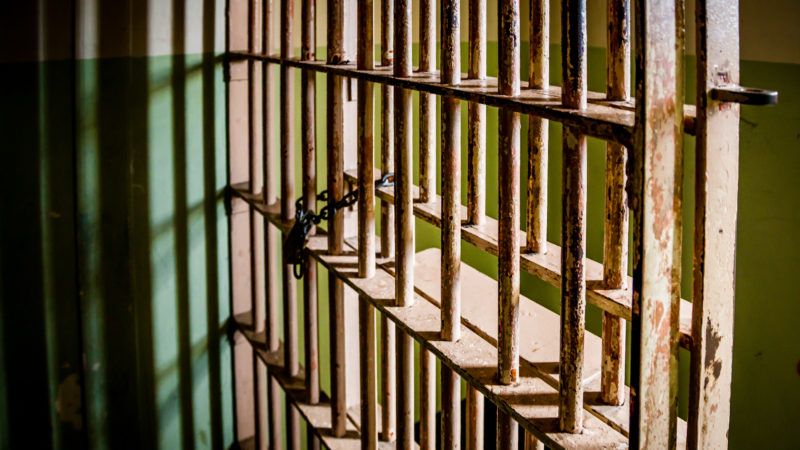A group of prison guards who forced an inmate to live in two cells infested with human feces and raw sewage for a total of 6 days are protected by qualified immunity and cannot be sued over the incident, a federal court ruled last year.
Though the U.S. Court of Appeals for the 5th Circuit acknowledged that the squalid conditions in which he was kept violated Trent Taylor's Eighth Amendment right to not suffer cruel and unusual punishment, the panel afforded the defendants protection from civil liability because no similar situation had been ruled unconstitutional under previous case law.
That's par for the course with qualified immunity, the legal doctrine that shields public officials from accountability for violating your rights if the scenario in which those rights were violated has not been spelled out with granular detail in a pre-existing court precedent.
The Constitutional Accountability Center (CAC) filed an amicus brief this month petitioning the Supreme Court to hear Taylor's case.
"Under the Supreme Court's case law, qualified immunity shields government actors from civil liability 'so long as their conduct does not violate clearly established statutory or constitutional rights of which a reasonable person would have known,'" says Brianne Gorod, Chief Counsel at CAC, "but the Supreme Court has made clear that 'officials can still be on notice that their conduct violates established law even in novel factual circumstances.'"
This should be one of those times, says Gorod. Judges on the 5th Circuit disagreed, awarding qualified immunity to Robert Stevens, Robert Riojas, Ricardo Cortez, Stephen Hunter, Larry Davison, Shane Swaney, Creastor Henderson, and Joe Martinez, who were all prison officials at the John T. Montford Psychiatric Facility Unit in Lubbock, Texas, during the alleged incident.
On September 6, 2013, Taylor says that he was forced naked into a cell with "massive amounts" of feces across the floor, windows, walls, and ceiling. It gave off a "strong fecal odor." Taylor claims he could not drink water because feces were "packed inside" the faucet, and he did not eat over worries that the food might get contaminated.
Taylor alleges that Cortez, Davison, and Hunter laughed at him when he expressed concerns and that one guard told him he was "going to have a long weekend." Taylor says that Swaney similarly shrugged off his complaints, telling him "Dude, this is Montford, there is shit in all these cells from years of psych patients." Taylor stayed in the cell until September 10th.
On September 11, Taylor was transferred to an empty seclusion cell with a clogged drain overflowing with raw sewage. Lacking a toilet, he was told to urinate on the floor. But because the drain was stopped up, and because he lacked a bed, he would have then been forced to sleep in his urine. Taylor refused and proceeded to urinate on himself involuntarily after 24 hours passed. He stayed in that cell until September 13, after which time the guards attempted to escort him back to the feces-inundated cell. He begged for a different placement, and the guards obliged.
Circuit Judge Jerry E. Smith writes in his opinion that Taylor's case meets the threshold for an Eighth Amendment violation. He cites two court precedents—McCord v. Maggio (1991) and Gates v. Cook (1994)—that affirm a prisoner is not to be subjected to egregiously unsanitary living conditions. Gates, the judge writes, further supports Taylor's claims that the guards acted with deliberate indifference, which Smith notes is "no small hurdle."
But in a poignant demonstration of how qualified immunity works in practice, Smith then transitions to explaining why the guards deserve protection from civil liability: "The law wasn't clearly established. Taylor stayed in his extremely dirty cells for only six days," Smith writes. "Though the law was clear that prisoners couldn't be housed in cells teeming with human waste for months on end, we hadn't previously held that a time period so short violated the Constitution. That dooms Taylor's claim."
Put more plainly, the guards cannot be held liable, but not because their alleged conduct didn't infringe on Taylor's right to be free from cruel and unusual punishment. It did—current case law confirms as much. Taylor cannot sue the guards for violating his constitutional rights—which the Court agrees happened—because the length of time Taylor spent in those filthy conditions has not been carved out with razor-like precision in previous case law.
This isn't surprising. Qualified immunity has protected public officials from accountability in a slew of cases where their behavior was unquestionably wrong. As Smith mentions, the doctrine requires that rights violations be "clearly established," which, in turn, means that nefarious conduct often gets a pass simply because a court hasn't evaluated a case with identical circumstances.
Consider the two cops who received qualified immunity after allegedly stealing $225,000. Or the cop who received qualified immunity after shooting a 10-year-old (or, alternatively, the one who shot a 15-year-old). Or the cops who received qualified immunity after assaulting and arresting a man for standing outside of his own house. Or the prison guard who received qualified immunity after hiding while an escaped inmate raped someone in the building. Or the cops who received qualified immunity after siccing a police canine on a person who'd surrendered.

